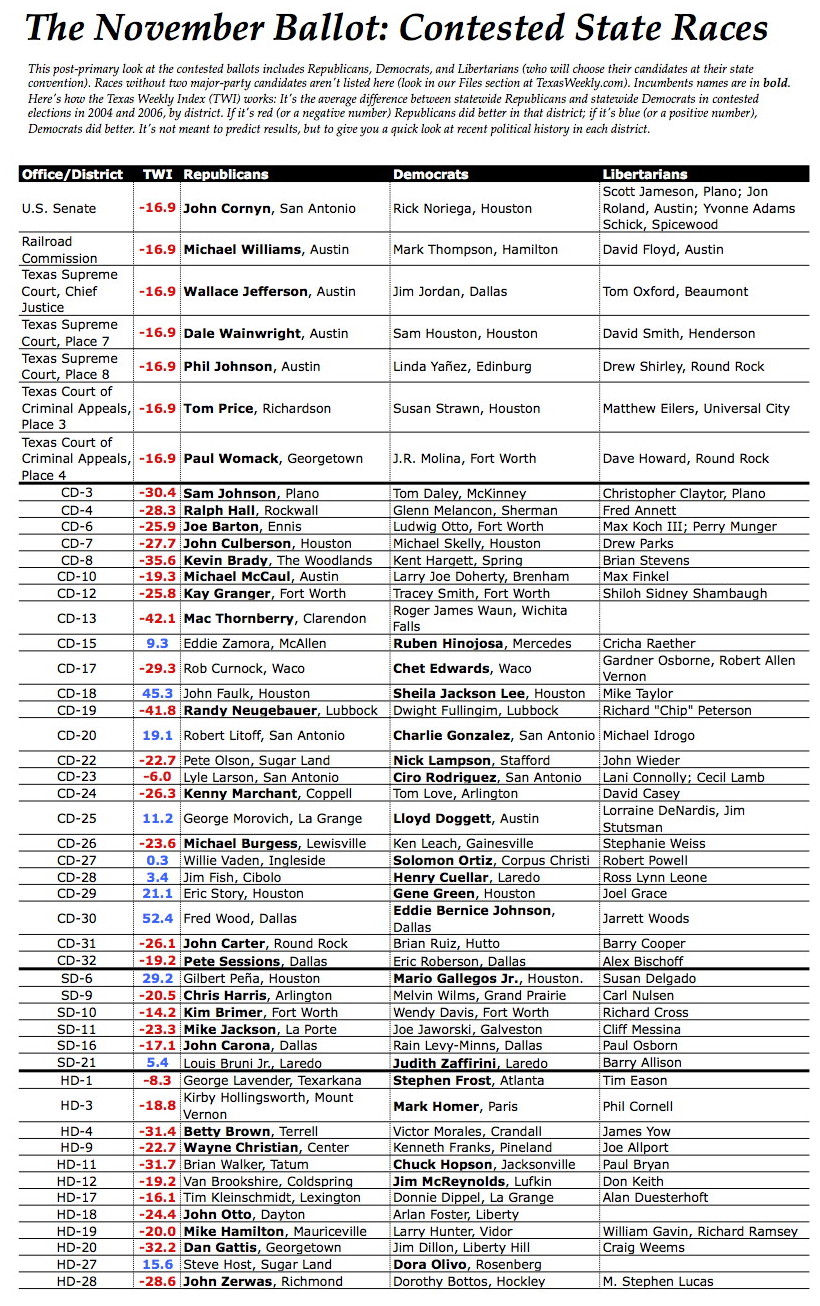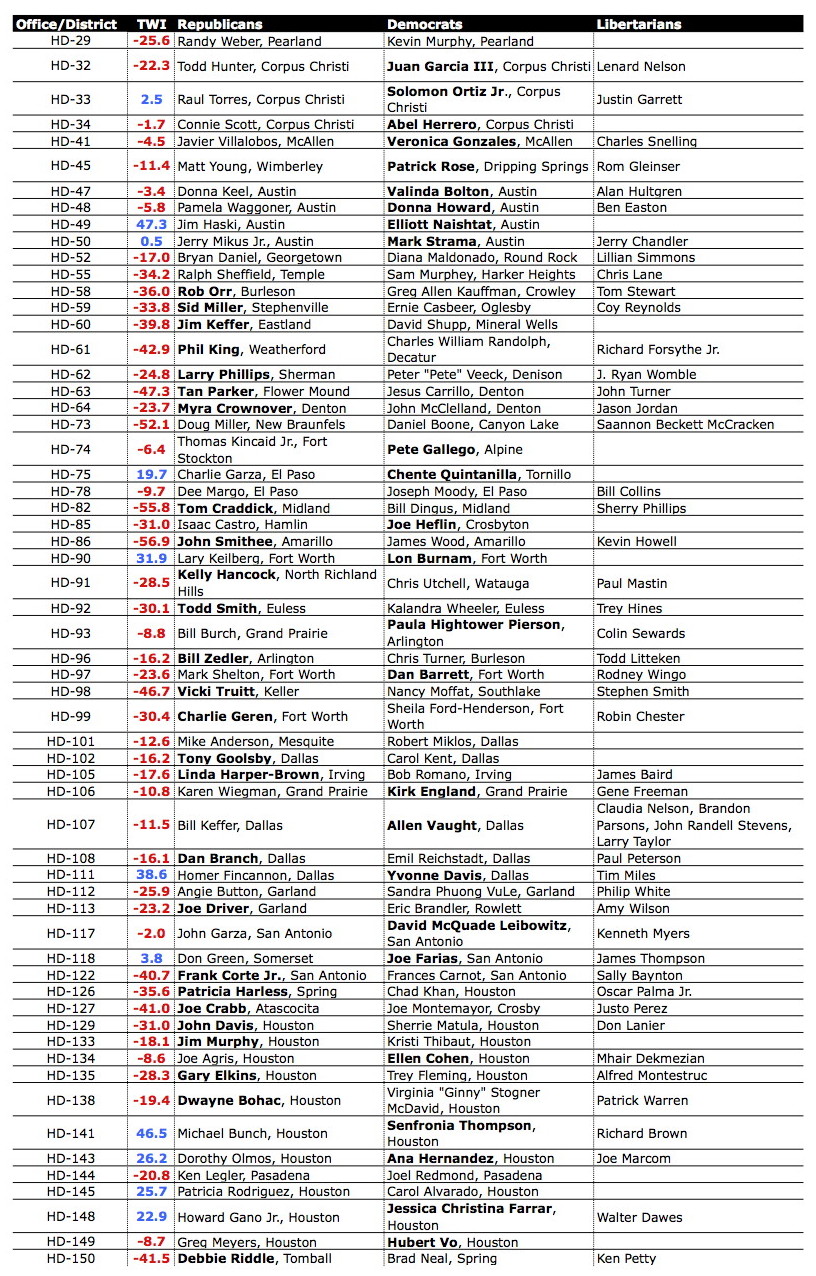Lt. Gov. David Dewhurst recently completed a run of TV ads on Voter ID and immigration, geared to dovetail with non-binding GOP ballot questions on those issues. The Lite Guv's not on the ballot, but wanted to "talk to voters while they were paying attention." Dewhurst does all of the talking in the ad, which starts with pictures of soldiers saluting at a cemetery, a shot of Dewhurst, pictures from polling places, of a driver's license with a fingerprint on it and then a final shot of Dewhurst's bumper-sticker logo, which says "David Dewhurst Lieutenant Governor." "Americans have given their lives to protect our right to vote. That's why it's so critical only American citizens are allowed to vote. I'm David Dewhurst. We need to implement existing federal law and issue a tamper-proof driver's license or photo I.D. so we know who's here. And make sure that only U.S. citizens vote. Join me in protecting this basic American freedom. Our right to vote." The text on the screen changes during the ad, starting with Dewhurst's name, and in time with the script, "Only American Citizens Vote", his name again, "Tamper-Proof Photo I.D.", then his web address — www.dewhurst.org— and finally a disclaimer.



